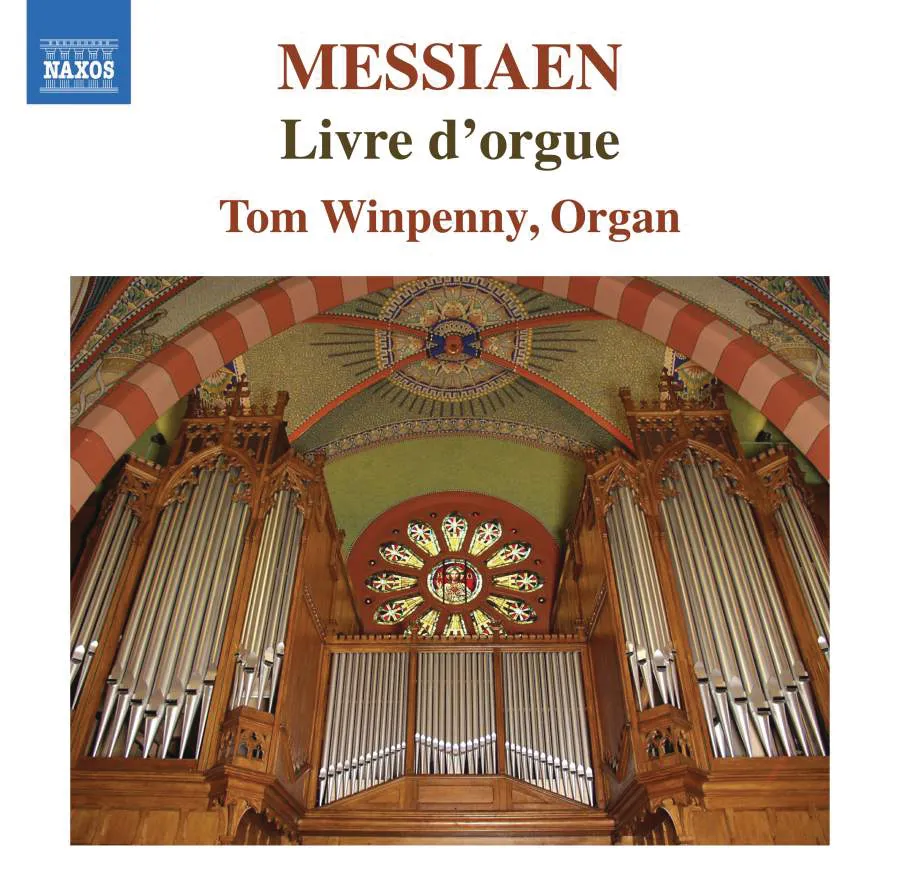
Messiaen Livre d’orgue; Monodie; Tristan et Yseult; Verset pour la fête de la Dédicace Tom Winpenny (organ) Naxos 8.573845 57:29 mins
This is the most rewarding disc thus far in Tom Winpenny’s survey of Messiaen’s organ works. The Livre d’orgue (1951) is the radical heart of the composer’s writing for the instrument. Written in the midst of a period when he was experimenting with how the fundamentals of musical sound relate to each other, the title – a nod to the experiments of earlier French organ masters – seems dryly abstract set alongside Messiaen’s usual rich imagery. However, while the compositional methods may have been esoteric, the extraordinary sounds emanating from Messiaen’s instrument in the early 1950s were described at the time as being vibrantly wild.
Winpenny’s precision suits the esoteric machinations of the opening and closing pieces, ‘Reprises par interversion’ and ‘Soixante-Quatre durées’, with the organ of the Église Saint-Martin, Dudelange, Luxembourg possessing some delightfully rasping pedal notes. Crucially, he also finds real power and passion in conveying the abyss of ‘Les Mains de l’abîme’. Winpenny prefaces the Livre with an attractive account of the Verset pour la fete de la Dédicace, probably the least familiar of Messiaen’s acknowledged organ pieces. Two posthumous discoveries complete the disc. The little Monodie from 1963 is no more than an exercise for a tutor book written by Messiaen’s assistant at Sainte Trinité. At the opposite end of the spectrum comes a premiere recording with the sweetly harmonised ‘Thème d’amour’ for Lucien Fabre’s 1945 play Tristan et Yseult. Instantly recognisable to anyone familiar with the Messiaen’s song cycle Harawi, it nicely caps a fine disc.
Christopher Dingle
